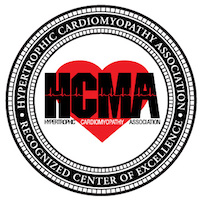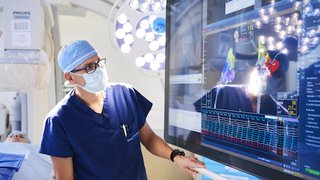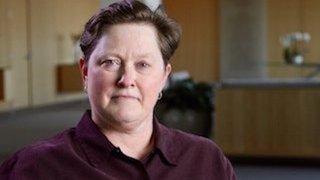How Is Hypertrophic Cardiomyopathy Treated?
After completing a comprehensive assessment, our multidisciplinary team can offer personalized treatment based on the patient’s goal and symptoms, including the latest medical therapy.
Treatments include:
- Cardiac myosin inhibitors (CMI): Mavacamten is the first drug to directly target hypertrophic cardiomyopathy and can improve quality of life and exercise capacity. Due to a rare risk of heart dysfunction, these inhibitors are carefully regulated, and at UT Southwestern, we have a multidisciplinary CMI team that helps patients thrive on this new medication while minimizing risks.
- Surgical myectomy: We provide evaluation and patient-oriented discussion of the benefits and risks of surgical myectomy for patients with obstructive HCM.
- Heart transplant: We offer advanced heart failure treatment and evaluation for heart transplantation for patients who are developing end-stage heart failure.
Are recreational exercise and competitive athletics permitted with HCM?
The role of exercise in HCM has changed dramatically over the past 10 years due to research showing exercise is safe and effective for patients with the condition. Some of this cutting-edge research has been performed at UT Southwestern. We can evaluate and counsel any patient with HCM interested in recreational exercise, as well as offer a shared decision-making approach for competitive athletes with confirmed or suspected HCM.
Are patients with HCM at increased risk for arrhythmias and risk of sudden cardiac death?
Patients with HCM can be at risk for abnormal heart rhythms, which can cause symptoms or even death. At UT Southwestern, we thoroughly assess every patient with HCM for their risk of arrhythmias, and we provide evaluation and personalized approaches for patients with or at risk for abnormal heart rhythms. Treatment may include implantable cardioverter defibrillators (ICDs), subcutaneous ICDs (s-ICDs), or anti-arrhythmic medication.













